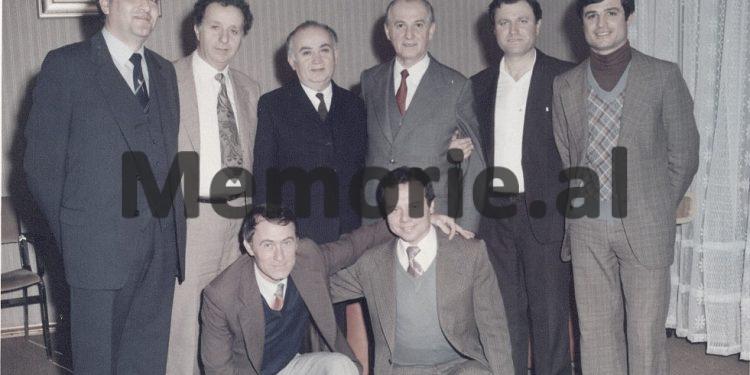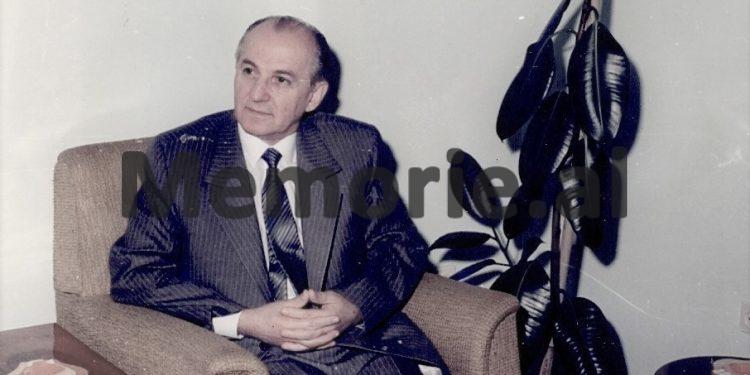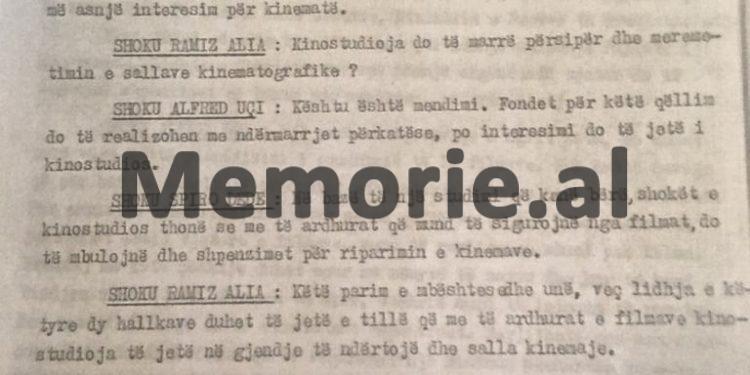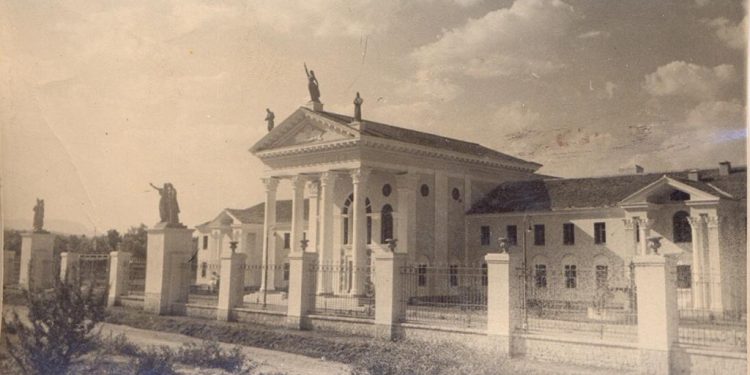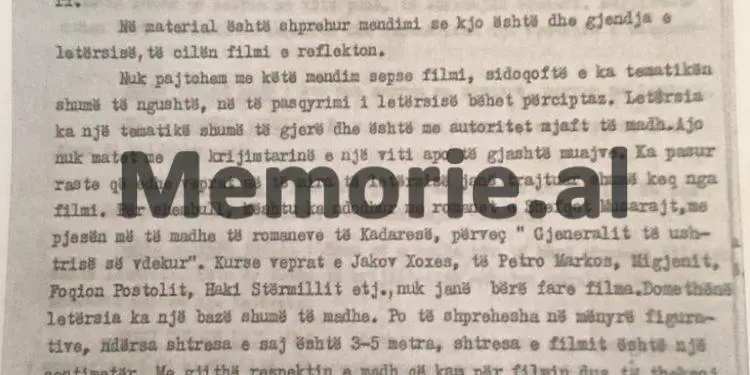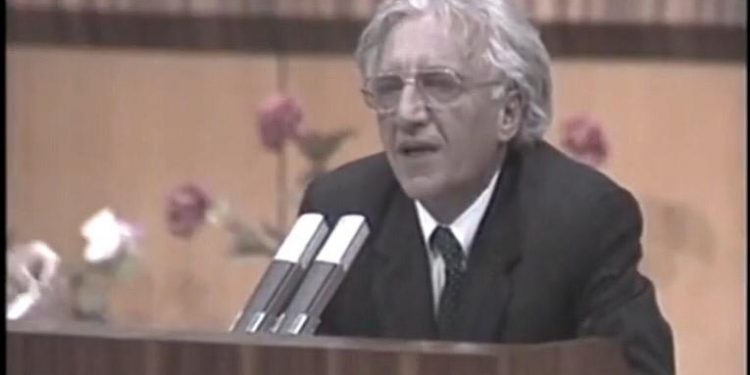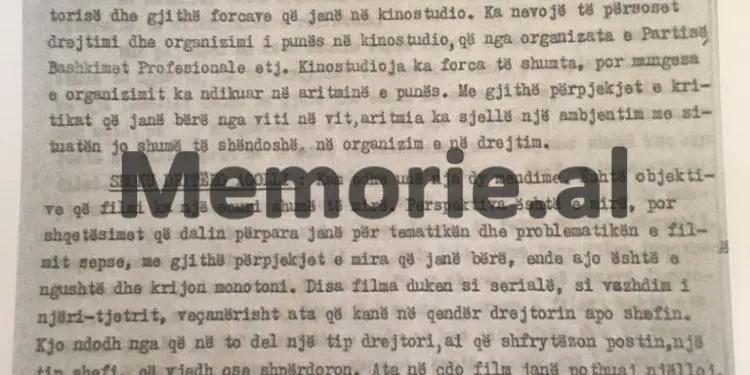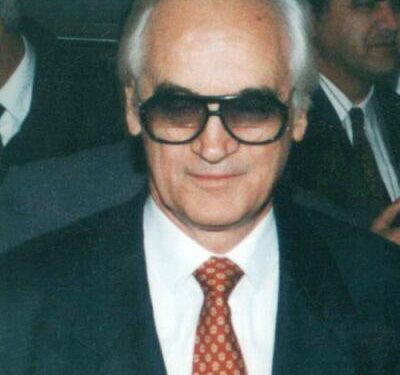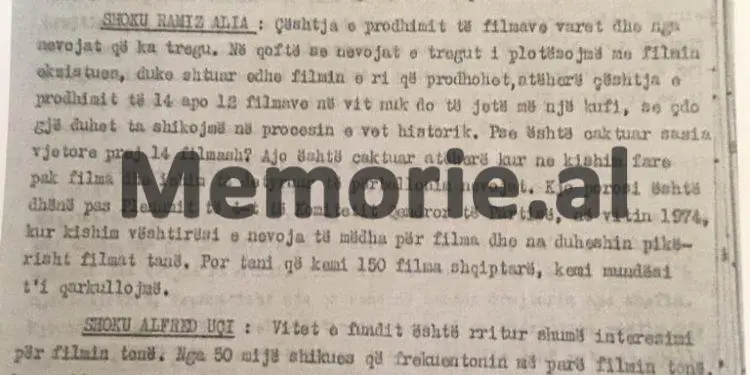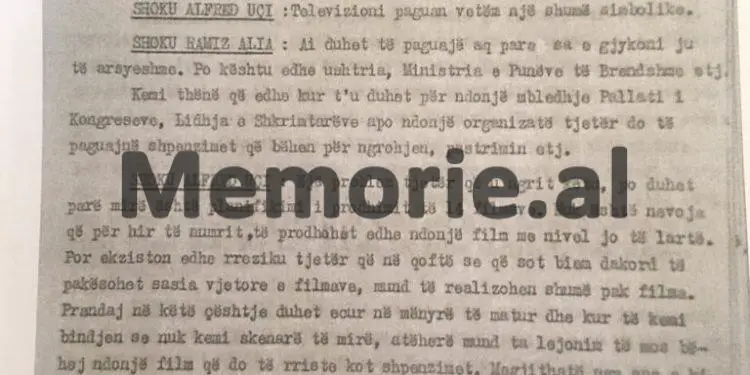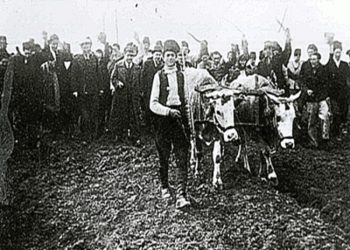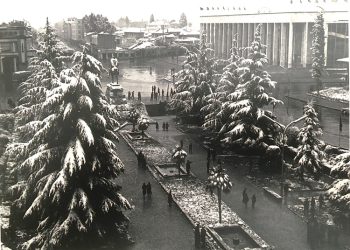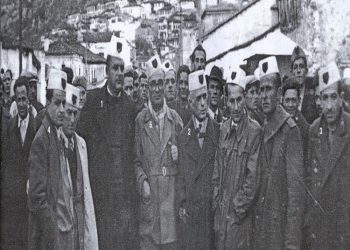Dashnor Kaloçi
Memorie.al publishes some archival documents taken from the Central State Archive in Tirana (fund of the former Central Committee of the ALP), belonging to 1990, where there is a record of the meeting of the secretariat of the Central Committee of the ALP which, as the main item on the agenda, had “on some issues of today’s cinematographic creativity” and in that meeting which was chaired by the First Secretary of the Central Committee of the ALP and the Chairman of the Presidium of the People’s Assembly of The People’s Socialist Republic of Albania, Ramiz Alia, in addition to the secretaries of the Central Committee such as: Foto Çami, Hekuran Isai and Lenka Çuko, also participated some of the highest officials of the party and state leadership of that time, such as: Spiro Dede, Abdyl Backa , Ali Vukatana, Sotir Koçollari, Alfred Uçi, Dritëro Agolli, Lisen Bashkurti, Skënder Gjinushi, Neritan Babamusta, Dhimitër Shandro, Marash Hajati etc. The full minutes of the meeting with conversations and discussions between Ramiz Alia and the senior party and state leadership of that time, with the main leaders from the creative sector of Kinostudio “Shqipëria e Re”, such as: Teodor Laço, Dhimitër Anagnosti and Nexhati Tafa, who dwelled at length on the problems of Albanian cinematography.
“Both ways seem to be rational and useful. Complete studies are also necessary, e.g. students of the directing branch at the Higher Institute of Arts, can study for directing after finishing 3-4 years of school. In general, and in other parts of the world, directors prepare after graduating from high school. Directing studies are a second school for them. In many cases, those who prepare for directing do not go to the faculties of drama or directing, but to other faculties, especially the faculties of literature. We have not practiced this until today, but with those of the director, because at the present time usually the director of the film is also the author or co-author of the screenplay. This would be one way of full professional preparation. The second way is to prepare the staff we have with postgraduate courses with a short period of 1 year for directing. For example, this year we successfully closed a postgraduate course with 4 students of directing, who made two good films. To prepare for the first road we sent a student to France who will study 4 years of directing. However, he is the only one and, in my opinion, seeing the demands that Kinostudio has today, it is very little …!”
This was stated, among other things, in his speech at one of the meetings of the secretariat of the Central Committee of the ALP of 1990, Teodor Laço, then head of the script editorial office at the Kinostudio “Shqipëria e Re”, a meeting on “Some issues of today’s cinematographic creativity ”, which was chaired by the First Secretary of the Central Committee of the ALP and the Chairman of the Presidium of the People’s Assembly of the People’s Socialist Republic of Albania, Ramiz Alia, where in addition to other secretaries of the Central Committee, as Photo Çami, Lenka Çuko and Hekuran Isai, were also present in most of the senior party and state leadership of that time that had direct or indirect connections with art and culture. For more than what was discussed in that meeting where besides Teodor Laços, from Kinostudio “Shqipëria e Re”, participated also the director Dhimitër Anagnosti and the screenwriter, Nexhati Tafa, the document in question introduces us to the minutes of that meeting, which Memorie .al publishes it in full and for the first time in some issues of the dossier section.
Followed by the last number
Minutes of the meeting of the Secretariat of the Central Committee of the ALP, with the staff of the creative sector of Kinostudio “Shqipëria e Re”
COMRADE TEODOR LAÇO: That’s right.
COMRADE DRITËRO AGOLLI: This does not happen in the preparation of directors for theater.
COMRADE TEODOR LAÇO: They get their degree with a piece they put on stage.
COMRADE DRITËRO AGOLLI: The day before yesterday I was at the meeting of their organization and it turned out that the parts are staged by the professors, while those who finish directing do not take part in the stage.
COMRADE TEODOR LAÇO: I know that they have staged plays…
COMRADE DRITËRI AGOLLI: I also have something for the material base and technology. In a material I saw, it was predicted that 2 million 800 thousand dollars and 300 thousand rubles were needed for the renovation of the equipment.
I think that this request is not appropriate at the moment. I have heard this concern other times and it would be good to do something, but such a large investment should be made gradually.
We still have the technology of print, newspapers and books, which are the foundation of culture. This technology is much older than Kinostudio or Radio-Television. Maybe in this matter I am being conservative, but to immediately spend 2 million 800 thousand dollars, is a lot.
COMRADE RAMIZ ALIA: You see the issue through the eyes of the saver…
COMRADE ALFRED UÇI: There must be changes in the state of the typography industry, in general, but also in the technique of Kinostudios, because otherwise it cannot be done. We understand that these changes cannot be made immediately, but must be made gradually.
COMRADE DRITËROI AGOLLI: I think more changes need to be made in the typography industry. This does not require any such large sum and may be of great benefit to the people. While something can be done about the film, even with this technique used, the films come out well. Increasing their quality level is more about artistic mastery.
COMRADE TEODOR LAÇO: We have a machine for subtitles, produced 50 years ago. Movie subtitles are now in such a state that no country in the world accepts them.
COMRADE RAMIZ ALIA: Another 16-millimeter subtitling machine came to you. I do not know what happened to him?!
COMRADE TEODOR LAÇO: Television has that machine, and what we have is only for the subtitles of the letters in the translation. When we translate our films into foreign languages, all the letters move by the light they receive. The subtitling machine we have is so old and worn out that it remains in our hands for a day and does not work at all…
COMRADE RAMIZ ALIA: You cannot use the electric car that has television…?
COMRADE TEODOR LAÇO: We cannot use it, because they are completely different technologies.
COMRADE NEXHATI TAFA: It seems to me that Dritëroi sees the problem in his own plan as a creator, as a writer. Dhimitri, who knows her and knows her condition, can speak better about the Kinostudios technique.
COMRADE RAMIZ ALIA: Dritëroi catches the problem as a saver.
COMRADE NEXHATI TAFA: Savings must certainly be seen. We also know the concerns we have, but we thought to say here and the concerns and state of the art, which is at a critical moment for s it belongs to its main parts.
COMRADE DRITËRO AGOLLI: Well, repairs can be made, but do not ask for the maximum. The press must play a major role in propagating the ideas of the 9th Plenum of the Central Committee of the ALP.
I have the impression that the press takes the problems much simpler, writing “was he elected, or the one in charge”, “he retired”, etc. Such a cursory treatment of the issues of further revolutionization and democratization of the life of the country has nothing to do with the new and advanced thinking about the work in general and not only about the film. I think it is necessary to see how the initiative of the people for a new organization of activity develops, how the opinion of the intelligentsia is taken, whether the leaders of the enterprise, institutions, in the Party organizations are capable of absorbing this opinion, how the Party’s life goes in meetings open etc.
I have been to several meetings of party organizations and I have seen that in many of them there is great interest from fellow members to attend the meetings of the organization. For example, at the meetings of the organization of the Higher Institute of Arts only two people from the collective came. I told the communists of this organization that either they are in opposition to the collective and the collective does not like them, or their organization is weak. Even when a major problem for the students of this institute was discussed, only two non-partisans attended the open meeting of the organization.
COMRADE SPIRO DEDE: But even from those who had come, the dean for example was invited.
COMRADE RAMIZ ALIA: Apparently the collective there does not know and does not love the communists, because they are not an example.
COMRADE DRITËRO AGOLLI: I was impressed by the attitude of the deputy secretary of the party bureau, who said that he did not know anything about this meeting. Can he control the state of the organization?! Party life has many such problems.
The press says that the open meetings of the Party will move things forward, but he does not go deeper into the problems. For example, one should be careful about the degree to which the state of interest of the individual and the collective is harmonized, based on the new measures that have been taken? In what position is culture in the scale of revolutionization and democratization of life today?
All the press, but especially the “Voice of the People” and the literary press should orient people in this situation. It seems to me that the newspaper “Bashkimi” has found a better angle of view, which has addressed very interesting issues.
COMRADE RAMIZ ALIA: That’s right. The remarks you made to the press are right. Marashi should take note of these remarks.
COMRADE MARASH HAJATI: It is rightly remarked on the subject of newspaper articles. In this regard, we have to fight harder and we are making efforts, but I think that the staff of the main institutions, the elected comrades, should be closer to the press and write about the problems they know. Understandably, these friends know the problems much better than journalists. Their firms need to come to print more often. But although after the Plenums of the Central Committee of the Party the journalists went, met them and asked for their writings, in general their writings are almost unpublished.
COMRADE RAMIZ ALIA: The issue should not be limited to seeking cooperation from only a few firms. It seems to me that Comrade Dritëro’s remark was a little more substantial. It was related in the sense of the essence of the decisions of the 9th Plenum of the Central Committee of the Party, Dritëroi was not only talking about literature or the arts, which the Writers and Artists League deals with, but he went into the problems of democratization of the director’s relations with the workers, of the democratization of the meetings of the party organization. When he spoke about the meetings of the basic organization of the Party, he brought as an example the meeting of the basic organization of the Party of the Higher Institute of Arts, where he had been delegated, but he could also talk about other meetings of this character. So important is the issue of understanding the essence of the decisions of the 9th Plenum of the Central Committee of the Party, of the ideo-political aspect of these decisions, this should be felt very strongly in the newspaper. Is there any other opinion?
COMRADE PHOTO ÇAMI: I also have a couple of opinions, although my friends told me about the problems. It seems to me that there are three basic issues being discussed for Kinostudio: staffing problems, the problem of material base and organization.
In the staffing problem the most important is the issue of the qualification of the screenwriters. The screenplay is the bread of the film. Herein lies the initial and greatest weakness that prevents a higher quality of our films. It is true that we do not have specialized, profiled, genuine screenwriters as such, or they are few. But experience shows that with a closer collaboration between the screenwriters, the screenwriters and the directors of Kinostudios, much better results can be achieved. Experience has proved this not only in Kinostudio, but also in drama theaters, that there has really worked between the director and the author of the drama, very good results have been achieved.
This is a way they should practice in the future to give a boost to the work done with the scripts. For the scenarios I think the rush that is sometimes noticed should be avoided. Poor films are usually shot when there are no script backups. We must fight to create reservations for the scenarios, so that we have the opportunity to choose and not be faced with the fact that the plan must be realized with any kind of scenario. Of course, this is not an easy task, but it can be accomplished with effort, both by the internal forces of Kinostudios, and by cooperating better with external creative forces.
As for the forms of qualification for directors, operators and others, I agree with the idea that was said here in the first place, we should try to prepare and qualify these people within the country. The studio that has been set up near the center in Kinostudio should be put on a sound footing, in order to really serve this purpose. But I am of the opinion that some cadres can be sent for specialization abroad. They can be chosen by the best directors and cameramen we have today. If there is a need for some friends to complete full-time studies abroad, we need to look at this issue concretely, I think the best way would be specialization. Those who prepare at our Institute of Arts, take a base and find it easier to specialize. Staying six months or a year near a movie studio or specialist institution can be quite beneficial.
For the amortization of the material and technical base of Kinostudios, the concern of the friends is very right. This base has been used intensively for many years, therefore there is a need to renew it. Although for now we cannot make large expenditures, for this purpose something must definitely be done, otherwise we will be in a much more difficult position in the future. The opinion of the Culture and Arts Committee is that we should make these renovations gradually, because they cannot do them all at once. However, we must move on this issue, so as not to create more difficult situations in the future. In other areas as well, as Dritëroi said, we have many needs, we have problems for the press, etc., but the urgent needs of Kinostudios must be considered.
As for the annual production of films, I think the set amount should be left. If we leave it like this, what Dritëroi said can happen, in the name of quality, the annual number of films will drop a lot. And the needs of spectators for movies are great. By producing fewer films, or aggravating the state subsidy. Besides, we have been doing badly for years on this path, and now why go back and reduce the annual amount of film production?
However, I do not think that the figure of 14 films a year can be cut, motionless, it can be as an orientation, then whether 12 or 13 films are made, this issue can be viewed, as it can be maneuvered by producing perhaps any short film to complete the number.
COMRADE SPIRO DEDE: This is how they acted… / Memorie.al
Continues in the next issue




